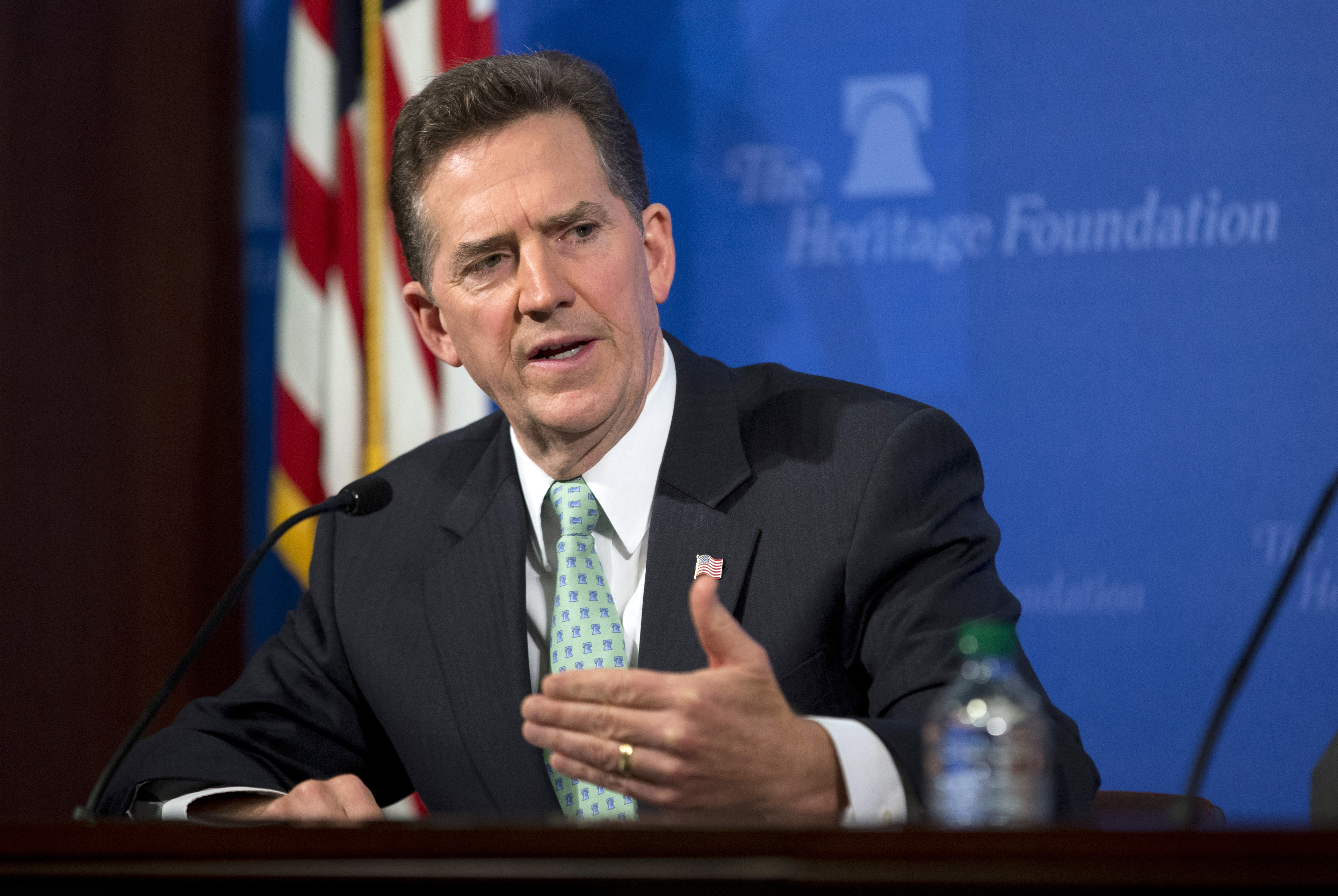Often people can only take so much pressure before they seek to release it in rash and sudden ways, throwing caution and a careful consideration of consequences to the wind.
There were good signs when President Trump was elected that many Americans were entering into that kind of moment. And now, with millions realizing just how widespread and deeply rooted are the problems cool-and-collected President Obama had helped us emotionally paper over, the urge to find release in rash words and deeds is kicking into overdrive.
There’s talk of a “cold civil war,” a bitter longing for “national divorce,” and now, fresh interest in a “convention of the states” to add several big constitutional amendments. However gratifying the fantasy may be of renewing our founding charter’s virtue in this way, it’s ultimately unwise and misconceived.
Liberty-minded citizens could be forgiven for latching onto the convention project out of a combination of frustration, desperation, and high ideals. While our constitutional system helped ensure that policymaking would work more slowly than the passions of the people and the interests of elites might demand, today, even areas of life where substantial reform is clearly needed are languishing. Politics, probably at least in part as a result, has devolved decisively into a mouth-foaming “debate” over the relative moral and coercive power of symbols and semiotics — a great way for rallying pseudo-tribes against other groups, but a terrible way of governing.
With both policy and politics locked in such a frenetic kind of attrition, ordinary reckless strategies of breaking free from the impasse by “shaking the tree” take on a certain kind of calculated logic. At this point — even without reference to ideology or political philosophy — why not crack open the Constitution and see if we can get something more promising going?
Add in the particular convictions and aims of some conservatives and libertarians, and the idea can seem irresistible: just ask deposed Heritage Foundation chief and ex-Sen. Jim DeMint, who recently came aboard the movement as an adviser.
Unfortunately, DeMint’s involvement in such a half-cocked scheme speaks even more loudly to the wretched condition of “the liberty movement” than it does to the urgency of radical reform. The convention of the states is not just a Plan B relative to traditional means of advancing a federal-level liberty agenda. It is a last-ditch effort that no one would bank on if anything else in Washington seemed to favor their goals.
Although organizers and supporters feel sure that they would control the tempo of change and define the content of the changes, the truth is that nationalist and populist sentiment today tilts more to the left than it does to the right. Once the constitutional seal is broken, pro-liberty convention supporters would be stunned to discover how quickly the initiative could be taken away from them and delivered into the hands of socialist-leaning reformers ready to hardwire permanent general entitlements, under the language of fundamental rights, into the law of the land.
A growing constituency on the left has even begun to question the legitimacy of such basic institutions as equal state representation in the Senate. Conservatives and libertarians are deluding themselves if they think such powerful ideological currents are so alien to our traditions that they can simply be swept aside, or that the odds of a constitutional free-for-all that slips from their more modest agenda are too low to worry about.
Even if the convention were to go off without an ideological hitch, its proponents would be in trouble. As an abstract ideal or conceptual lodestar, there’s plenty to be said from a liberty standpoint for the convention’s mission: “to debate and impose a complete package of restraints on the misuse of power by all branches of the federal government.” Open the box, though, and what’s inside squares too poorly with that objective even on its own terms.
Among the examples of concrete changes to be sought, the convention lists a balanced budget amendment, term limits on Congress and the Supreme Court, an upper limit on federal taxes, a sunset clause on all federal taxes and a supermajority requirement to add new ones, and a limitation on the ability of Congress to delegate its lawmaking power to regulatory and executive agencies.
From one standpoint, these are incredibly audacious goals, which a majority of Americans will likely oppose or support for reasons at odds with the liberty movement even very broadly construed. From another, however, they are actually tediously uncreative.
The term limits debate is a tired holdover from the 1980s and 1990s, with no clear evidence that it will lead to a decrease in electioneering or ideological attrition, or to an increase in wiser, more prudent lawmakers (to say nothing of justices!). Ditto the balanced budget amendment — a hoary and immature notion akin to ridding your kitchen of knives to ensure your children don’t wind up stabbing you to death.
There is no prudent place to peg an ontologically “correct” upper bound to taxes, and no place in a founding document for such a context-dependent rule. No supermajority will exist to rewrite all federal taxes, and abandoning federal taxes will drive a dagger through infrastructure, military and other already underfunded spending.
The sad fact is that America’s sorry state will not be fixed by a constitutional convention or by the specific amendments convention organizers support most. Even as an exercise in trying to break the cycle of debilitating attrition in Washington, it will do more harm than good.
The tree in need of shaking today is cultural, not constitutional.
James Poulos is a columnist for the Southern California News Group.
[ad_2]
Source link

